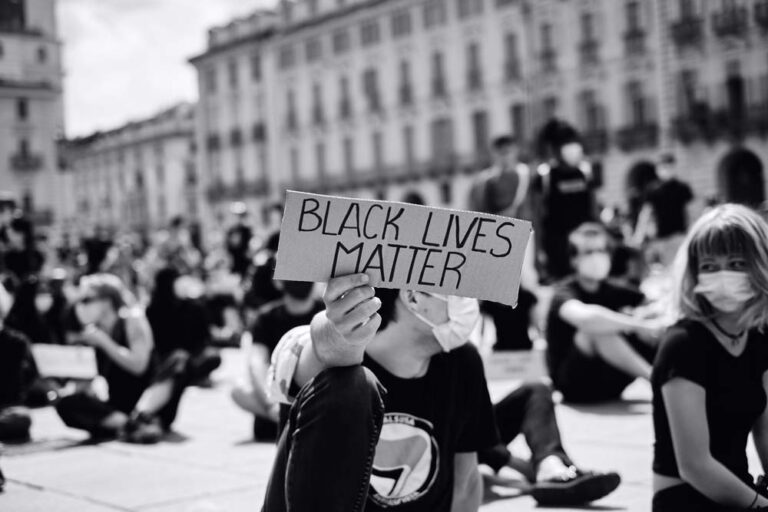
One of my clients used to swear a lot, and while I suspected that swearing isn’t good for our mental health, at that time I didn’t have a clear reason as to why it could be the case.
Today, I can tell you with certainty that swearing should be avoided as much as possible because we are more likely to misuse any “swearing is good for you” advice and use it in an unhealthy way. It is best to stay away from it overall and try not to make any exceptions.
In this way, positive emotions are known to be more efficient than negative ones. For example, positive people are, on average, more productive, creative, better in a social environment, earn more money, are healthier, enjoy life more, and are overall better in virtually every other part of life. Swearing belongs to the realm of negative self-expression, so it makes people worse off, so again, it should be avoided as much as possible.
Addressing the “Swearing is Healthy” Argument

Negative emotions exist because we need them, and this is also true for swearing. There are important evolutionary reasons as to why we swear, such as:
1. Emotional expression & pain relief: Swearing can be a way to vent or express strong emotions such as anger, frustration, pain, or surprise. By using strong language, individuals may release tension, reduce emotional arousal, and communicate their feelings more intensely. Swearing has been linked to increased pain tolerance and decreased perception of pain, potentially due to the release of endorphins or the distracting effect of swearing.
2. Social bonding: Swearing can deepen social connections and solidarity within a group, especially with other people who are feeling equally bad. When people engage in swearing together, it can create a sense of shared experiences and build trust among individuals.
3. Dominance and power: In some situations, swearing can be used to assert dominance, intimidate others, or display social power. By using offensive or taboo language, individuals may aim to establish authority, control, or assert their position in a given social hierarchy.
4. It can be funny: Swearing can have a comedic effect by introducing surprise, shock, or violation of social norms, thereby eliciting laughter from others. However, it is important to consider the audience and context when using swearing as a form of humor. What might be amusing to some individuals or in certain social settings may be offensive or inappropriate to others. Humor involving swearing should be used with caution to ensure it does not cause harm or offend others.
Why Swearing Is Actually Bad For Us

When I was young, my parents used to tell me “don’t swear” and leave it at that. When I’d ask “why?” they would give me some general answer such as it is considered bad and inappropriate due to social norms, etiquette, and the potential to offend or disrespect others.
And while at that age I accepted my parents’ arguments at face value, later in my more rebellious teenage and young adulthood years, I tried swearing but ultimately decided against it, making my decision more on a gut level rather than using higher intellectual reasoning. However, today I want to be more specific as to why swearing is bad for us:
1. Reinforcement of negative emotions: First and foremost, swearing might offer temporary emotional relief, but ultimately it reinforces negative thinking and contributes to a cycle of anger, frustration, and overall negativity. In other words, negativity propels further negativity, and our overreliance on swearing may limit our ability to develop healthier coping mechanisms.
2. Foster negative perception: Constantly using profanity may lead others to view us in a negative light, perceiving us to be rude, vulgar, or lacking self-control. This can impact our personal and professional relationships, as well as our overall reputation. While negative emotions can help us connect with other negatively-minded people, ultimately we should choose positivity because it is better for our health, well-being, and enjoyment of life.
4. Short-term benefits are short-lived: As stated above, swearing, anger, and overall negativity can produce short-term positive results. For example, people may behave in a way we want them to behave. However, in the long-term, people will see anyone who excessively uses negative emotions as a way to foster control as insecure, bullies, and overall someone we don’t want to deal with. While we may get some short-term benefits from negative self-expression, in the long-term we are likely to pay an even higher price.
5. Offending or alienating others: Some people believe that swearing isn’t that bad and people understand the comedic nature of it all or that they can “take it.” However, swearing can easily offend and disrespect others, putting them into a negative state, which is why we should avoid swearing and any other sort of negative expression as much as possible.
6. Childishness and lack of professionalism: Swearing may give the impression of poor communication skills, lack of professionalism, or an inability to control one’s emotions. It can create the impression that a person who swears has not taken the time to develop an adequate vocabulary to express themselves in a healthier and more mature manner, both to themselves and in public communication.
Overall, excessive swearing is a clear sign of negative thinking. While swearing has many advantages, sooner rather than later it becomes unhealthy for our own mental health, taking more than it gives in terms of its advantages.














